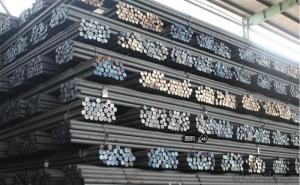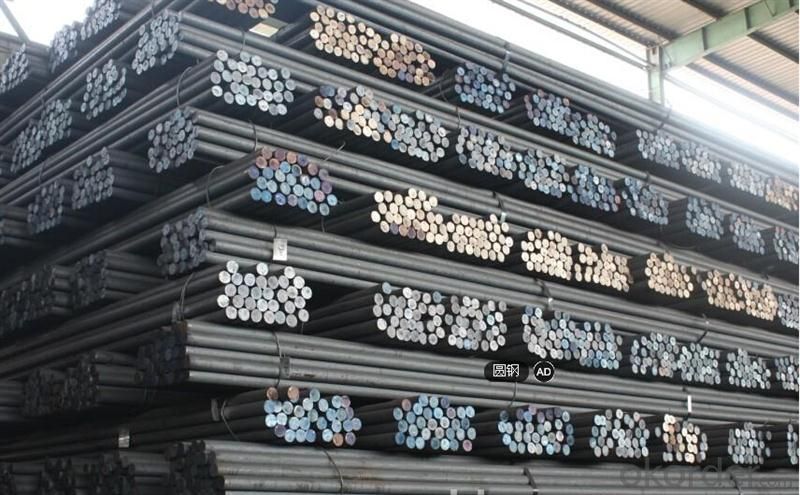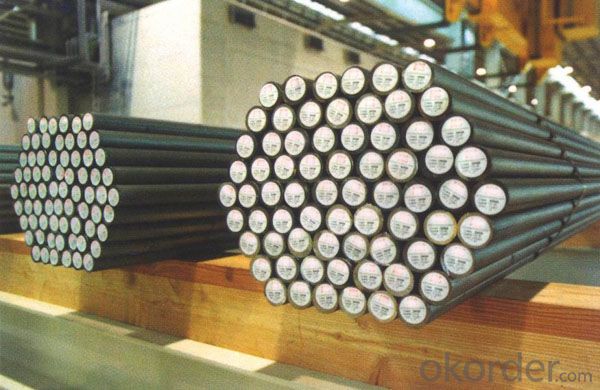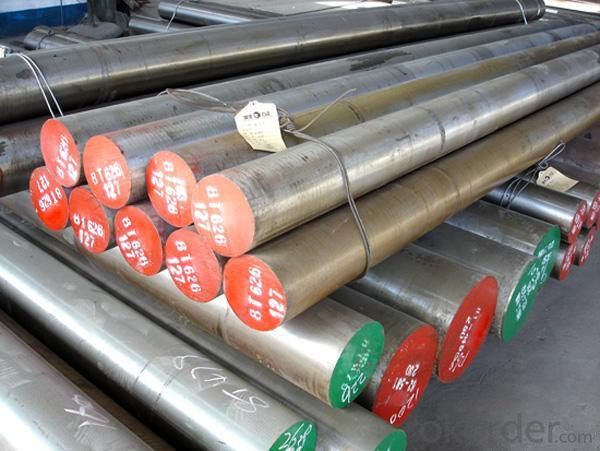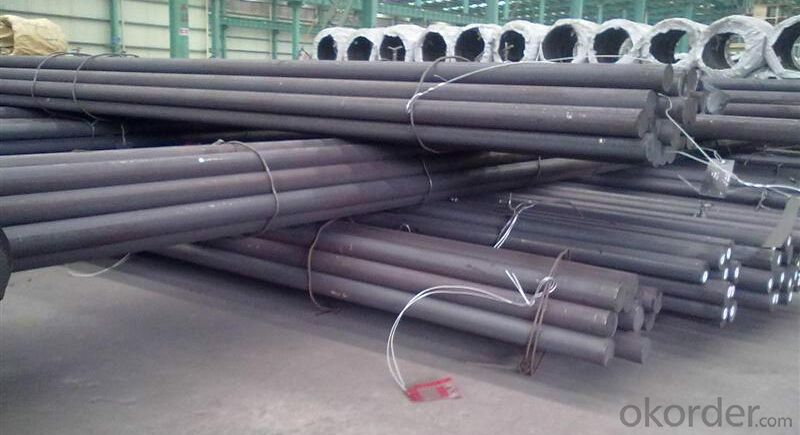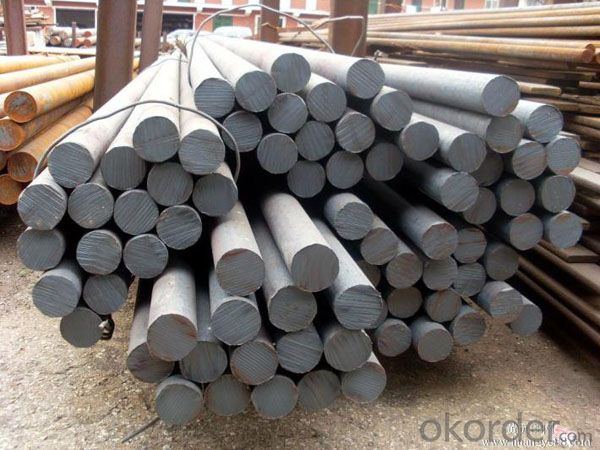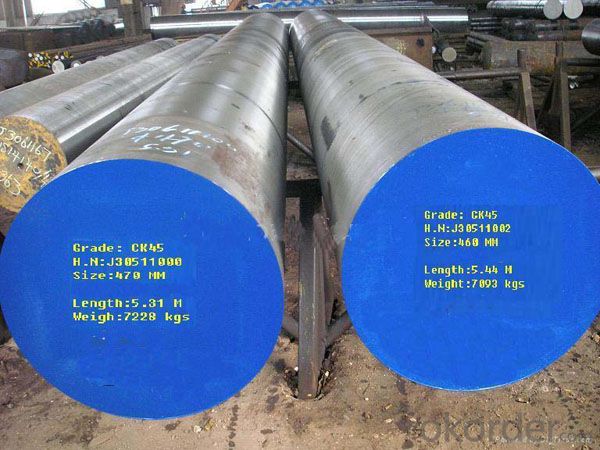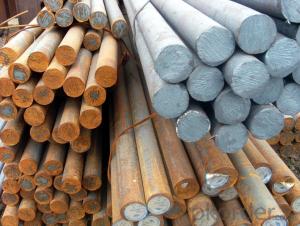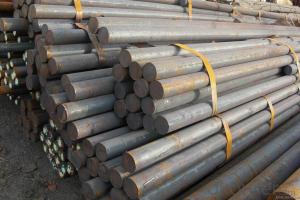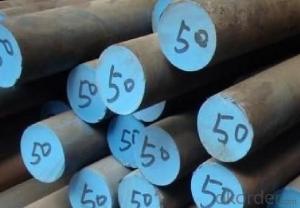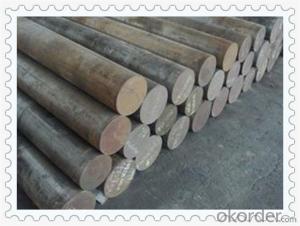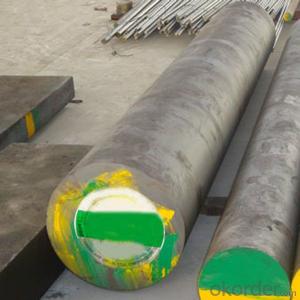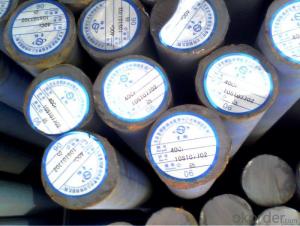Grade SCM440 Forged Alloy Steel Round Bar
- Loading Port:
- Shanghai
- Payment Terms:
- TT OR LC
- Min Order Qty:
- 3 m.t.
- Supply Capability:
- 100000 m.t./month
OKorder Service Pledge
OKorder Financial Service
You Might Also Like
Specification
Grade SCM440 Forged Alloy Steel Round Bar
Details Information of Grade SCM440 Forged Alloy Steel Round Bar
| Name | SCM440 Carbon Steel Round Bar |
| Shape | Round Bar/Square Bar/Flat Bar/Plate/Wire |
| Standard | GB/ASTM/SAE/AISI/DIN/JIS/EN/BS |
| Surface Treatment: | Black/Peeling/Polished/Machined |
| Delivery Condition: | Hot Rolled or Forged/Peeled or Black Surface |
| Test | SGS/UT 100% Elements Testing |
| Certificate: | ISO/Mill Certificate |
| Service: | 24 hours online service / |
| more than 20 years trading and manufacture | |
| Quality Assurance: | the third party inspection, such as SGS, BV, TUV…etc. is acceptable |
| Packaging Details: | Seaworthy Packaging or as per customer's packing instruction |
| Carbon structure round bar | Q195 Q235A Q235B 10# 20#-55# S45CB |
| Low alloy high strength round bar | Q345A/Q345C/Q345D Q345B Q345E |
| Alloy structure round bar | SAE51B20 20Cr 40Cr 40CrV 20CrMo/30CrMo/35CrMo/42CrMo 20CrMoA/30CrMoA/35CrMoA/42CrMoA/42Cr ML20CrMo/ML30CrMo/ML35CrMo/ML42CrMo B7/SCM435-440 20MnTiB 20CrMnMo 20CrMoH 42CrMoH 40MnB/40MnBH 30Mn2-40Mn2 27SiMn 50CrVA 30CrMnTi |
| Pinion steel | 20CrMnTi 20CrMnTiH 20CrMnTiHCS/20CrMnTiHLD Q20CrMnTi-1/Q20CrMnTi-2 |
| Sucker rod | 20-35CrMoA |
| Free-cutting steel | GT1215S |
| Spring steel | 60Si2MnA 65Mn |
| Ball bearing steel | GCr15 |
Chemical Composition of Grade SCM440 Forged Alloy Steel Round Bar
| C | Si | Mn | P | S | Cr | Ni | Cu |
| 0.17-0.24 | 0.17-0.37 | 0.35-0.65 | ≤0.035 | ≤0.035 | ≤0.25 | ≤0.25 | ≤0.25 |
| Tensile strength (σb/MPa) | Yield strength (σb/MPa) | Elongation (δ5/%) |
| ≥410(42) | ≥245(25) | ≥25 |
Company Introduction of Grade SCM440 Forged Alloy Steel Round Bar
CNBM International Corporation is the most import and export platform of CNBM group(China National Building Material Group Corporation) ,which is a state-owned enterprise, ranked in 270th of Fortune Global 500 in 2015.
With its advantages, CNBM International are mainly concentrate on Cement, Glass, Iron and Steel, Ceramics industries and devotes herself for supplying high quality series of refractories as well as technical consultancies and logistics solution.
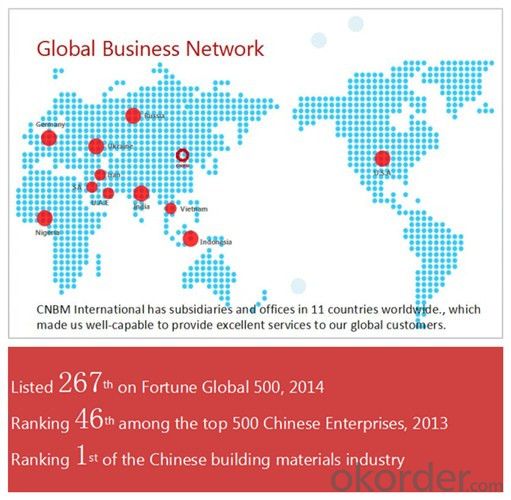
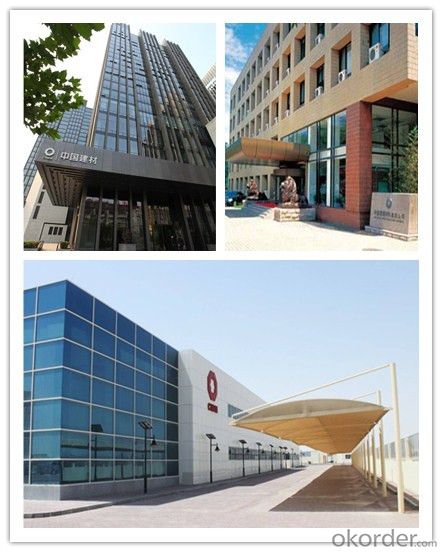
Certificates of Grade SCM440 Forged Alloy Steel Round Bar
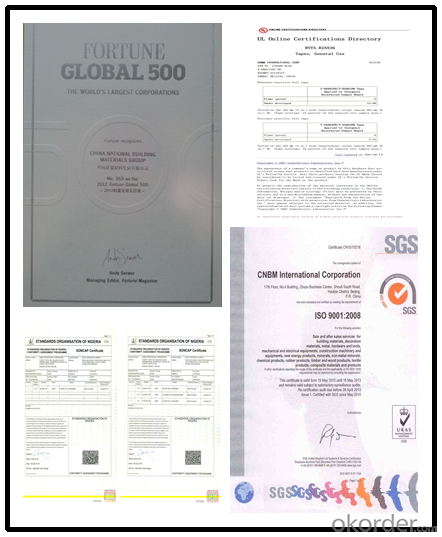
Packaging & Delivery of Grade SCM440 Forged Alloy Steel Round Bar
Packaging Detail | Sea worthy packing /as per customer's packing instruction |
Delivery Detail | 15 ~ 40 days after receiving the deposit |
Products show of Grade SCM440 Forged Alloy Steel Round Bar
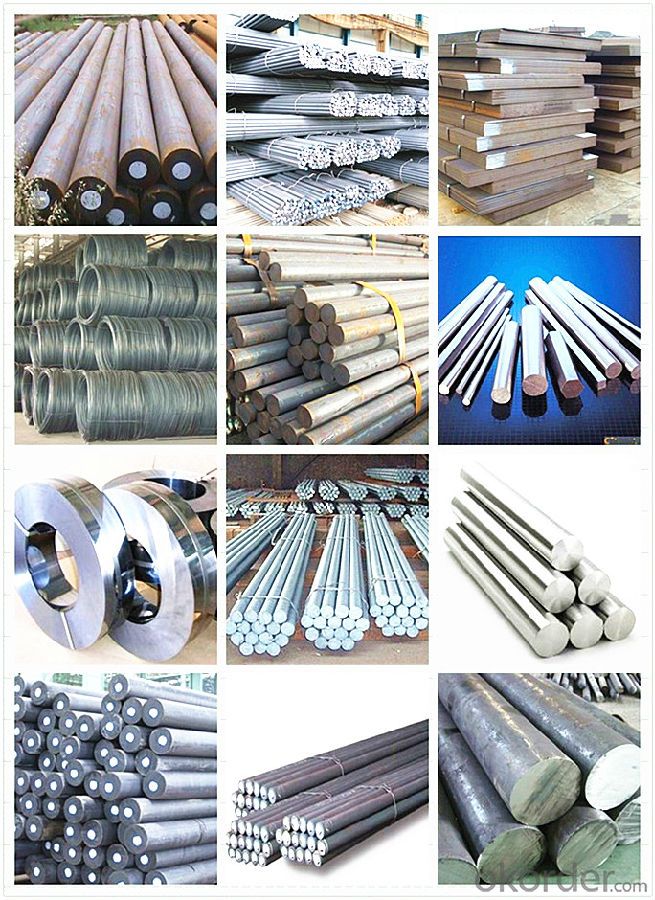
FAQ
Are you a trading company or manufacturer? | Manufacturer |
What’s the MOQ? | 3 metric ton |
What’s your delivery time? | 15-35 days after downpayment received |
Do you Accept OEM service? | Yes |
what’s your delivery terms? | FOB/CFR/CIF |
What's the Payment Terms? | 30% as deposit,70% before shipment by T/T |
Western Union acceptable for small amount. | |
L/C acceptable for large amount. | |
Scrow ,Paybal,Alipay are also ok | |
Why choose us? | Chose happens because of quality, then price, We can give you both. Additionally, we can also offer professional products inquiry, products knowledge train (for agents), smooth goods delivery, excellent customer solution proposals. |
What's your available port of Shipment? | Main Port, China |
What’s your featured services? | Our service formula: good quality+ good price+ good service=customer's trust
|
Where are your Market? | Covering more than 160 countries in the world |
- Q: Can special steel be used in the telecommunications industry?
- Yes, special steel can be used in the telecommunications industry. Special steel, such as stainless steel or corrosion-resistant steel, can be utilized for various applications in telecommunications infrastructure, including tower structures, antenna components, cables, and connectors. These types of steel offer high strength, durability, and corrosion resistance, ensuring reliable and long-lasting performance in the telecommunications sector.
- Q: How does special steel perform in cryogenic wear resistance?
- Special steel typically performs well in cryogenic wear resistance. This is because special steel alloys are specifically designed to withstand extreme temperatures, including cryogenic conditions. These alloys often possess excellent hardness, toughness, and resistance to deformation at low temperatures, making them highly resistant to wear and damage in cryogenic environments.
- Q: What are the different medical grades of special steel?
- Medical steels are classified into different grades based on their unique properties and characteristics in the medical field. These grades are specifically tailored to meet the strict requirements of medical applications, including surgical instruments, implants, and medical devices. Some well-known medical grades of special steel include: 1. Stainless Steel: The most commonly used medical grade of special steel is stainless steel, renowned for its exceptional corrosion resistance and biocompatibility. It contains high levels of chromium and nickel, which provide corrosion resistance and make it suitable for implants and surgical instruments. 2. Titanium Alloys: Lightweight yet strong, titanium alloys are ideal for medical applications like orthopedic and dental implants, as well as cardiovascular devices. These alloys are highly biocompatible and exhibit excellent resistance to corrosion and fatigue, ensuring long-term durability. 3. Cobalt-Chromium Alloys: Cobalt-chromium alloys possess exceptional strength, wear resistance, and stability at high temperatures, making them suitable for implantable devices such as hip and knee replacements. They offer excellent biocompatibility and strike a good balance between strength and flexibility. 4. Nitinol: Nitinol, composed of nickel and titanium, is a shape memory alloy with unique properties like superelasticity and shape memory effect. Its excellent biocompatibility and ability to adapt to different physiological conditions make it commonly used in medical devices such as stents, orthodontic wires, and vascular closure devices. 5. High Carbon Stainless Steel: High carbon stainless steel is a specialized grade used in surgical instruments that require exceptional sharpness, hardness, and wear resistance. This grade allows for the production of extremely fine and precise cutting edges, making it suitable for delicate procedures. These are just a few examples of the medical grades of special steel utilized in the healthcare industry. Each grade offers specific advantages depending on the intended application, and their selection is crucial to ensure optimal performance, biocompatibility, and patient safety.
- Q: What are the different types of mold steel?
- There are several types of mold steel used in various industries, such as tool steel, stainless steel, and carbon steel. Tool steel is commonly used for high-volume production molds due to its excellent hardness, wear resistance, and toughness. Stainless steel is preferred for molds that require corrosion resistance and can withstand high temperatures. Carbon steel, on the other hand, is often used for less demanding applications where cost-effectiveness is a priority.
- Q: What are the different casting techniques used for special steel?
- Some of the different casting techniques used for special steel include investment casting, sand casting, continuous casting, and centrifugal casting. Each technique has its own advantages and is chosen based on factors such as the complexity of the steel part, the desired quality, and cost considerations.
- Q: What are the different machining techniques for special steel?
- There are several machining techniques specifically used for special steel, such as turning, milling, drilling, and grinding. Each technique involves different tools and processes to shape and cut the steel, depending on the required specifications and desired outcome. Additionally, other specialized techniques like electrical discharge machining (EDM) and laser cutting can also be utilized for special steel machining.
- Q: How does special steel contribute to improving product efficiency in energy-intensive processes?
- Special steel plays a crucial role in improving product efficiency in energy-intensive processes due to its unique properties. Its superior strength, durability, and heat resistance allow for the design and manufacturing of more efficient and high-performing equipment. By using special steel components, energy-intensive processes can operate at higher temperatures, withstand harsh conditions, and reduce material wear, resulting in increased productivity, reduced downtime, and ultimately, improved energy efficiency.
- Q: How does special steel perform in cryogenic toughness?
- Special steel has gained recognition for its outstanding performance in cryogenic toughness. Unlike regular steel, which significantly loses its toughness when exposed to extremely low temperatures, special steel is specifically designed to withstand such extreme conditions and maintain its toughness and ductility. The composition and microstructure of special steel are carefully engineered to ensure its high performance in cryogenic environments. Through a unique combination of alloying elements and heat treatment processes, special steel can resist brittle fracture and retain its strength even at temperatures as low as -196 degrees Celsius (-321 degrees Fahrenheit). The exceptional cryogenic toughness of special steel makes it an ideal choice for a range of applications, including the storage and transportation of liquefied natural gas (LNG), aerospace engineering, and medical equipment used in cryogenic medicine. It provides the necessary reliability and safety when subjected to extreme cold temperatures, ensuring the integrity and functionality of the materials and structures it is employed in. In conclusion, special steel's exceptional performance in cryogenic toughness distinguishes it from regular steel, making it the preferred choice for applications that demand reliable and durable materials in extremely low-temperature environments.
- Q: What are the properties of high-strength steel?
- High-strength steel possesses exceptional mechanical properties such as high tensile strength, toughness, and resistance to deformation. It also exhibits excellent corrosion resistance, which makes it suitable for various heavy-duty applications. Additionally, high-strength steel offers lower weight compared to conventional steel, enabling the design of lighter and more fuel-efficient structures.
- Q: Can special steel be coated or plated?
- Yes, special steel can be coated or plated with various materials to enhance its properties, protect against corrosion, or improve its aesthetic appearance.
Send your message to us
Grade SCM440 Forged Alloy Steel Round Bar
- Loading Port:
- Shanghai
- Payment Terms:
- TT OR LC
- Min Order Qty:
- 3 m.t.
- Supply Capability:
- 100000 m.t./month
OKorder Service Pledge
OKorder Financial Service
Similar products
Hot products
Hot Searches
Related keywords
